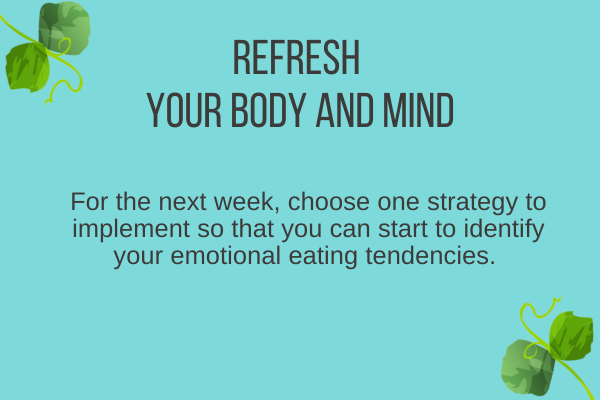Today, let’s delve into a topic that many of us can relate to—emotional eating. It’s a common response to stress, boredom, or other emotions, but it can impact our overall well-being.
Sometimes we might joke and acknowledge that we’re emotionally eating to cope with something stressful and it might genuinely be something temporary. But at other times, it can be a real challenge that leads to very real long term emotional, mental and physical harm.
The good news is that with awareness and strategies, we can develop a healthier relationship with food.
Here are some practical strategies to help you overcome emotional eating:
Understanding Emotional Eating:
Identify Triggers:
What specific emotions or situations trigger your urge to eat emotionally? Awareness is the first step in breaking the cycle. When you’re aware of your triggers, you can create an alternate plan for dealing with the emotions.
Distinguish Hunger from Emotions:
Before reaching for a snack, ask yourself if you’re genuinely hungry or if you’re responding to an emotional need. If you pause and wait a few minutes before reaching for a snack, you’ll give yourself time to identify what it is. Unless you have a medical condition, you can assure your brain that it’s OK to wait a little longer.
Keep a Food Journal:
Track your food intake along with your emotions. This can help identify patterns and provide valuable insights into your eating habits.
Seek Support:
Talk to friends, family, or a professional about your emotional eating. Sharing your struggles can be a powerful step towards breaking the cycle.
Strategies to Overcome Emotional Eating:
Mindful Eating:
Practice being present during meals. Put away your phone and arrange your food and your table in a way that it can be a pleasurable experience. Savor each bite, and pay attention to your body’s hunger and fullness cues.
Find Alternative Coping Mechanisms:
Develop a list of non-food-related activities that bring you joy or help you manage stress—whether it’s going for a walk, practicing mindfulness, or engaging in a hobby.
Create a Healthy Environment:
Stock your kitchen with nourishing foods and remove or limit access to tempting, less nutritious options.
Establish Routine:
Regular meals and snacks can help stabilize blood sugar levels, reducing the likelihood of impulsive emotional eating.

Share your experiences, progress, or any challenges by leaving a comment, I’d love to hear about your journey to developing a healthier relationship with food!

